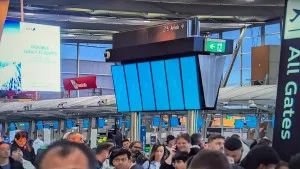Possible falsification of Tesla's autonomy figures: Elon Musk under the magnifying glass
Time to Read: 3 minute
An investigation carried out by Reuters would have found a possible falsification in the total autonomy offered by the electric models of Tesla, a company owned by Elon Musk.
Tesla and its CEO, Elon Musk, have been leading figures transforming the auto industry with their electric vehicles and their bold vision for a sustainable future. However, a shadow has recently emerged over the brand, as it has been alleged that there could have been a possible falsification of the autonomy figures of the cars.
This allegation, coming from a driver in North America, has led to Reuters to launch an investigation that reveals troubling details and puts the company and its iconic leader under scrutiny.
Origin
The story opens with Alexandre Ponsin, a North American Tesla Model 3 owner who purchased his pre-owned vehicle in March 2023, which had been manufactured in 2021. The alleged issue arose when he set out for a long I traveled from Colorado to California, hoping to trust the range that Tesla advertised for the car (560 km or 353 miles at 100% capacity).
However, during the drive, he noticed that the range of his vehicle was decreasing at a faster rate than expected and specified by the driver. maker. Intrigued and puzzled by this discrepancy, Ponsin decided to dig deeper into the situation.
After carefully examining the range of his Tesla Model 3, he realized that the battery was delivering only about half of the claimed range for that model, which was approximately 350 miles. Alarmed by this significant difference, he contacted Tesla's official technical service in California for answers.
The response he got from Tesla in seeking clarity from him was puzzling. According to Reuters, the technical service assured him (remotely) that there was no problem with his battery or with autonomy.
However, in a bizarre twist, her request for an in-person appointment with a technician was abruptly cancelled. This baffling episode left Ponsin in an awkward position filled with doubts about the reliability of the range figures being touted for Tesla vehicles.
What Ponsin was unaware of was that Tesla workers, according to Reuters, had been directed to prevent customers who raised concerns about unsatisfactory range from taking their cars for service.
Last summer, the company quietly established a team called the “Redirection Group” in Las Vegas, Nevada, with the goal of nullifying as many of appointments related to the possible scope, due to the saturation of appointments pending to attend.
Research
Investigation by Reuters has shed further light on this troubling situation. According to the news agency, Tesla would have developed software that alters the autonomy information displayed on the control panels of its vehicles.
This software would come into action when the battery was above 50% of its charge capacity. If these claims turn out to be true, they could have significant implications in terms of consumer confidence and government regulations.
The allegation of possible falsification of range figures casts a shadow over the image of Tesla and Elon Musk, who have been seen as pioneers in the electric vehicle industry and advanced technology.
Transparency and trust are essential in the relationship between a company and its customers, so any violation of this trust could have lasting consequences for Tesla's reputation.



